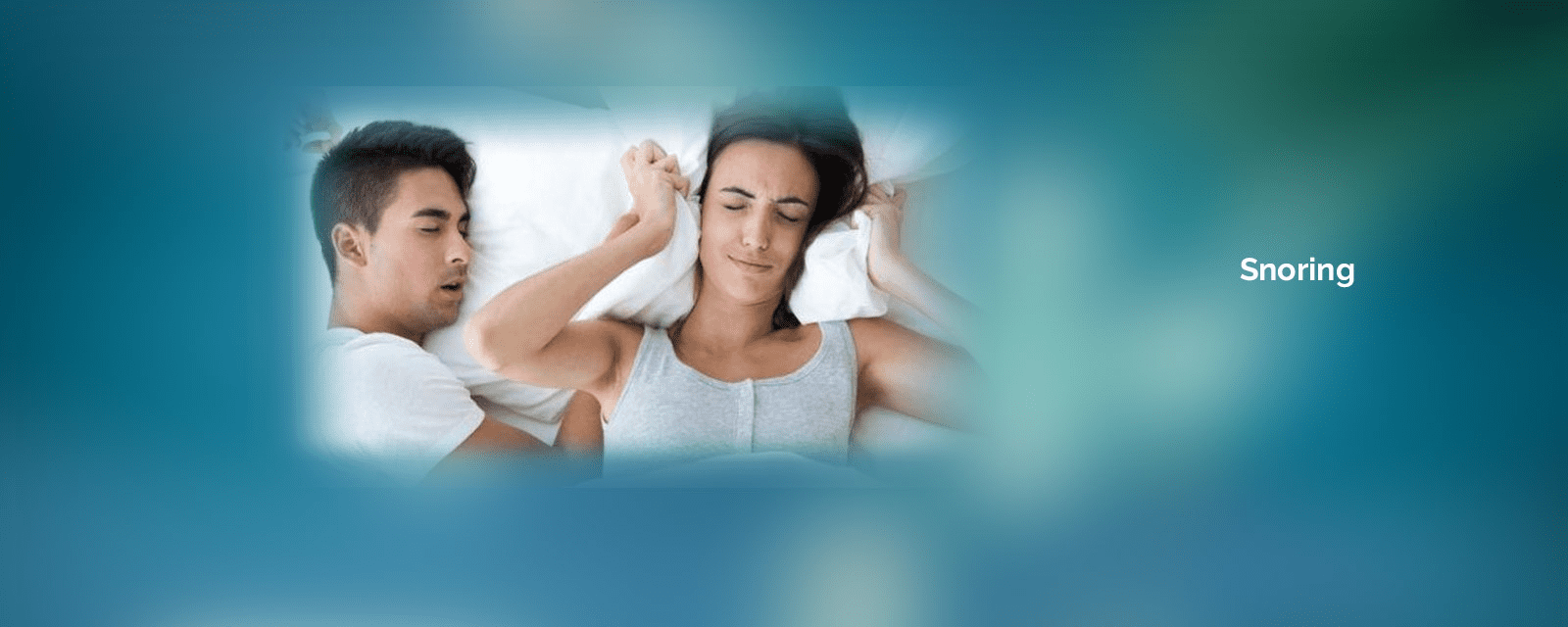Snoring is a result of obstructed air movement during breathing, which creates rumbling vibrations and sound in the respiratory structures. Snoring occurs in men more than women, and has a tendency to worsen with age. Snoring doesn’t sound very serious but can have quite negative effects in the long run. It also adverse effects on the partner of the affected person. Approximately 9% of all men and 5% of all women snore according to statistics.
It is difficult to know whether you’re snoring or not unless someone sleeping next to you (your partner) tells you about it. Habitual snorers (who likely have sleep apnoea) might experience symptoms like:
- Excessive daytime sleepiness
- Difficulty concentrating
- Morning headaches
- A sore throat
- Restless sleep
- Choking, snorting or gasping at night
- Waking up with short breath
- Chest pain
When to see a doctor?
See a doctor if snoring causes you or your partner problems. Snoring may be an indication of an underlying problem more serious than this one. Always trust the leading or best medical institutions for treatment and care, like Paras Hospitals group, which have specialized departments for such conditions.
Causes and Risk Factors
These could be the causes of snoring:
- Anatomy of the mouth: Having low or thick soft palates can narrow the airway. Having an elongated uvula has the same effect
- Sleep deprivation: Not getting enough sleep relaxes the throat, which can lead to snoring
- Sleep position: Sleeping on the back narrows the airway due to gravity
- Sleep apnoea: Is the most likely cause for habitual snorers
Risk Factors include:
- Being overweight: More tissue narrows the airway leading to snoring
- Alcohol consumption: Alcohol relaxes the throat muscles and can cause airway obstruction
- Nasal problems: Like nasal congestion can cause snoring
- Taking sedatives: Relaxes throat muscles leading to snoring
- Family history: If anyone in your immediate family snores or has sleep apnoea, this could be a factor
There is no certain treatment that can stop snoring, but lessening breathing discomfort has been known to stop it. Doctors mostly recommend lifestyle changes to stop snoring. These include:
- Losing weight
- Stopping smoking
- Avoid alcohol and sedatives
- Sleeping on the side
There are some devices which can be used to stop snoring, like:
- Orthopaedic pillows: These are designed in a way that the head and neck are in a position that keep the airway unrestricted. They mostly stop snoring, and if not, will at least lead to a reduction in snoring.
- Dental appliances: Like the mandibular advancement splints, which keep the jaw in a position where the airway is unrestricted.
- CPAP: Continuous positive airway pressure machine pumps a controlled stream of air through a mask worn over the mouth and nose. This keeps the airway open and stops snoring.
- Medication: Some people find relief from snoring by taking medications such as pseudoephedrine and domperidone.
- Surgery: This is only used as a last resort, when snoring is caused by sleep apnoea and is life threatening. Tissues are removed surgically to widen the airway.



 Call us at
Call us at